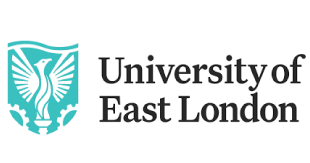email: support@mgmstudyabroad.com

Study In UK
The UK is an educational hub with over 130 universities offering undergraduate, postgraduate, and doctorate degrees. Studying in the UK for Indian students has become an increasingly attractive prospect due to its quality education, advanced technology, diverse work opportunities, and flexible curriculum. Higher education in the UK provides access to a wide range of universities, each offering a sophisticated and enriching academic environment. The investment in UK education yields substantial returns, making it a valuable choice for the future.
Studying in the UK is also affordable, with institutions providing various tuition fees, accommodation options, and financial assistance through scholarships, fee waivers, and aids. The UK prides itself on being at the forefront of research, technology, and innovation, offering students the best possible equipment and resources. Renowned universities such as the University of Oxford, University of Cambridge, Imperial College London, and the London School of Economics ensure that students receive a top-tier education, preparing them for global careers.
Furthermore, the UK offers excellent post-study work opportunities, allowing graduates to stay and work for up to two years after completing their degrees through the Graduate Route visa, enhancing their employability. The commitment to high academic standards and significant investment in research and technology ensure that students are well-prepared for future challenges. Studying in the UK not only provides a world-class education but also an invaluable cultural experience, making it an ideal destination for Indian students aiming for success on a global stage
Why Study in UK ?
- World-Class Education: The UK is home to some of the world’s best universities, including the University of Oxford, University of Cambridge, and Imperial College London, offering high-quality education recognized globally.
- Diverse Range of Courses: UK universities offer a wide variety of courses and specializations, allowing students to find programs that match their interests and career goals.
- Shorter Course Duration: Many undergraduate courses in the UK are three years long, and master’s programs can be completed in one year, making it a quicker and more cost-effective option compared to other countries.
- Post-Study Work Opportunities: The Graduate Route visa allows international students to stay and work in the UK for up to two years after graduation, providing valuable work experience and enhancing employability.
- Cultural Diversity: The UK is a multicultural nation with a rich history, offering Indian students a chance to experience diverse cultures, traditions, and perspectives, enhancing their overall learning experience.
- Scholarships and Financial Aid: Numerous scholarships, grants, and financial aid options are available to international students, making UK education more affordable. Examples include Chevening Scholarships and Commonwealth Scholarships.
- Research Opportunities: The UK is a global leader in research and innovation, providing students with opportunities to engage in cutting-edge research projects and gain hands-on experience in their fields.
- High Employability: UK degrees are highly regarded by employers worldwide. The UK’s focus on developing practical skills alongside academic knowledge ensures that graduates are well-prepared for the job market.
- Advanced Facilities and Resources: UK universities are equipped with state-of-the-art facilities and resources, including libraries, laboratories, and technological tools, supporting students’ academic and professional growth.
- Rich Cultural and Social Life: The UK offers a vibrant social scene with numerous cultural events, festivals, and activities, providing students with ample opportunities to explore and enjoy life outside the classroom.
In the field of Engineering, the UK offers top courses in computer science and information technology, including artificial intelligence, data science, and cybersecurity. Traditional engineering disciplines such as mechanical, electrical, civil, chemical, and aerospace engineering are highly sought after due to their emphasis on innovation and extensive research opportunities at institutions like Imperial College London, University of Cambridge, and University of Oxford.
Medical and Health Sciences courses in the UK are prestigious and rigorous, including programs in medicine, dentistry, pharmacy, nursing, and public health. These courses provide comprehensive training and hands-on clinical experience, preparing students for various healthcare professions. Additionally, biomedical sciences and public health programs focus on research and the application of medical knowledge to improve public health outcomes. Leading universities like King’s College London and University of Edinburgh are renowned for their medical programs.
In the category of Other Disciplines, popular courses include business and management programs such as MBAs and specializations in finance and marketing. The London School of Economics and Political Science (LSE) and University of Warwick are top choices for business education. Social sciences and humanities offer programs in psychology, sociology, political science, and international relations, with universities like University of Manchester and University of Sussex leading the way. Natural sciences such as biology, chemistry, and environmental science are also in demand, with top programs available at University of Bristol and University of Exeter. Additionally, arts and design fields such as graphic design and animation, as well as education programs focusing on leadership and curriculum development, attract many students. Mathematics and statistics programs are essential for careers in academia, finance, and data analysis, with University of St Andrews and University of Bath being prominent institutions in these fields.
These diverse and high-quality courses make the UK an excellent destination for students aiming for comprehensive education and promising career prospects.
The UK is one of the strongest economies in the world, offering robust job opportunities for graduates. In the UK, high-earning occupational groups include white-collar professionals such as managers, physicians, financial analysts, software developers, and engineers. The UK’s strong sectors in finance, healthcare, technology, and engineering make it an attractive destination for Indian students.
The UK has also been at the forefront in sectors like finance, healthcare, biotechnology, and information technology. Studying in the UK for Indian students includes opportunities for part-time work. Students are allowed to work 20 hours per week during the term (on-campus or off-campus) and full-time during holidays. On-campus jobs may include roles such as teaching assistantships or research assistantships, with students typically earning £8 to £10 per hour.
Thus, students can approximately earn £500-£600 per month, which can help cover living expenses. Additionally, many UK universities offer internships in related fields, which may be paid and provide practical experience. These internships can significantly enhance a student’s employability post-graduation.
After graduation, students in the UK can benefit from the Graduate Route visa, allowing them to stay and work in the UK for two years. This provides valuable work experience and a pathway to long-term employment. Students who have completed certain degrees in the STEM (Science, Technology, Engineering, and Mathematics) fields are particularly in demand and may find additional opportunities to extend their stay and work in the UK. After their Graduate Route visa, students can apply for skilled work visas to continue their careers in the UK.
Overall, studying in the UK provides Indian students with not only a world-class education but also excellent opportunities for professional development and career growth.
Higher education in the UK for Indian students means being part of a world-renowned education system with a diverse range of study options. Students can pursue their areas of interest or specialization across various types of institutions.
Public Universities: These state-funded institutions are financially supported by the government and typically have lower tuition fees compared to private institutions. Examples include the University of Manchester, University of Birmingham, and University of Leeds.
Private Universities: Private universities operate independently of government control and usually have higher tuition fees. Notable examples include the University of Buckingham and Regent’s University London.
Technical Institutes: These institutions specialize in Engineering and Science, known for their research and graduate programs. Examples include Imperial College London and Cranfield University.
Russell Group Universities: The Russell Group is an association of 24 leading public research universities in the UK, known for their academic excellence. Members include the University of Oxford, University of Cambridge, University of Edinburgh, and University of Glasgow.
Specialized Arts Institutions: These institutions focus on the creative arts, offering specialized programs in fields such as fine arts, design, and performance. Examples include the Royal College of Art and the University of the Arts London.
Liberal Arts Colleges: These colleges focus on undergraduate education in the liberal arts and sciences. Notable examples include the University of St Andrews and the University of Warwick.
Further Education Colleges: These institutions provide higher education and vocational training, offering qualifications such as Higher National Diplomas (HNDs). Examples include Newcastle College and Glasgow Clyde College.
Grading System
The UK grading system uses classifications such as First Class (1st), Upper Second Class (2:1), Lower Second Class (2:2), and Third Class (3rd) for undergraduate degrees.
Types of Degrees:
- Foundation Degree: Typically a two-year program that serves as a bridge between secondary education and university.
- Bachelor’s Degree: Known as an undergraduate degree, usually lasts three to four years.
- Master’s Degree: Usually takes one year to complete, though some courses can extend to two years.
- Doctorate: Known as a PhD, the duration ranges from three to five years, depending on the field of study and the nature of the research.
- Identify Universities and Programs:
- Research universities and courses that align with your academic and career goals.
- Check program requirements, course content, faculty, and application deadlines on university websites.
- Take Required Exams:
- Prepare for and take necessary standardized tests such as GRE or GMAT if required.
- Ensure you take English proficiency tests like IELTS or TOEFL and meet the program-specific score requirements.
- Collect Necessary Documents:
- Obtain academic transcripts and degree certificates.
- Secure letters of recommendation (usually 2-3) from academic or professional referees.
- Write a compelling Statement of Purpose (SOP) or Personal Statement.
- Update your Resume or CV.
- Gather any additional documents specified by the university.
- Application Process:
- Fill out application forms on university websites.
- Upload all necessary documents.
- Pay the application fees.
- Research and Apply for Funding:
- Look for scholarships, grants, and assistantships offered by universities and external organizations.
- Submit separate applications for scholarships if required, adhering to specific deadlines.
- Monitor Application Status:
- Regularly check your email and application portals for updates.
- Respond promptly to any additional requests or documents needed by the universities.
- Finalize Financial Arrangements:
- Confirm and finalize your funding sources, including scholarships, educational loans, or personal savings.
- Visa Application Process:
- Receive a Confirmation of Acceptance for Studies (CAS) from the university.
- Pay the Immigration Health Surcharge (IHS).
- Apply online for a Tier 4 student visa.
- Schedule and attend a visa interview at the UK Visa Application Centre (VAC).
- Pre-Departure Arrangements:
- Arrange for accommodation and book your travel.
- Attend pre-departure orientations if offered by the university or local education centers.
- Prepare necessary documents for travel, including your passport, visa, CAS, and financial evidence.
- Arrival and Enrollment:
- Arrive in the UK before your course start date.
- Complete the university’s enrollment and orientation process to familiarize yourself with the campus and academic environment.
Top Universities in UK








